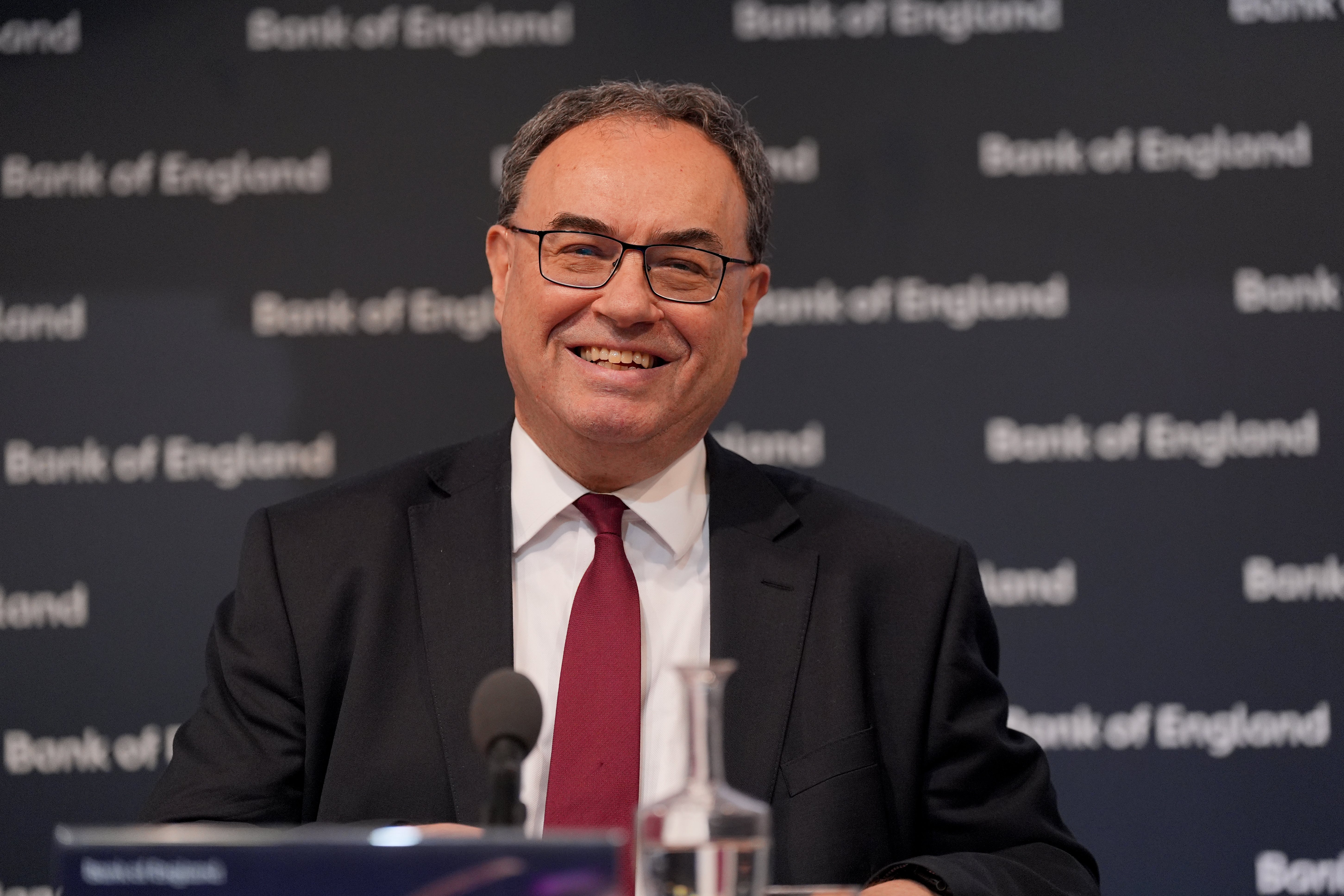Bank of England cuts interest rates for first time in more than four years
Base rate cut to 5% as inflation continues to hold steady

Your support helps us to tell the story
From reproductive rights to climate change to Big Tech, The Independent is on the ground when the story is developing. Whether it's investigating the financials of Elon Musk's pro-Trump PAC or producing our latest documentary, 'The A Word', which shines a light on the American women fighting for reproductive rights, we know how important it is to parse out the facts from the messaging.
At such a critical moment in US history, we need reporters on the ground. Your donation allows us to keep sending journalists to speak to both sides of the story.
The Independent is trusted by Americans across the entire political spectrum. And unlike many other quality news outlets, we choose not to lock Americans out of our reporting and analysis with paywalls. We believe quality journalism should be available to everyone, paid for by those who can afford it.
Your support makes all the difference.Homeowners should not expect borrowing costs to drop rapidly in the coming months, the governor of the Bank of England warned on Thursday after interest rates were cut for the first time since 2020.
The central bank reduced the base rate from 5.25 per cent to 5 per cent after a narrow vote among policymakers.
It means pressure will be eased for some homeowners who will see their mortgage costs come down, but it could prompt banks to start reducing savings rates.
Mr Bailey said the decision was possible because inflationary pressures “have eased enough” to allow a cut.
“But we need to make sure inflation stays low, and be careful not to cut interest rates too quickly or by too much,” he added.
His comments suggest rates are likely to fall more gradually than they have risen in recent years.
Many economists believe rates will be kept unchanged when the committee next meets in September, but another cut could come in November.
Former prime minister Rishi Sunak claimed the new government's decision to increase pay for public sector workers, including NHS staff, may put more pressure on overall inflation.
“My concern now is that Labour's inflation-busting public sector pay rises have put further cuts at risk,” he said.
The Bank was briefed about the pay rises and it is not expecting it to have a major impact on inflation.
Chancellor Rachel Reeves said homeowners will welcome the cut in interest rates, but warned “millions of people are still paying higher mortgage rates” in the wake of the Liz Truss 2022 mini-Budget.
Thursday's base rate cut means homeowners on tracker mortgages will see their payments cut by more than £340 a year on average.
There are also about 700,000 fixed-rate mortgage deals which are due to end in the second half of the year, and may see lower rates being offered by lenders.
It is the first time UK rates have been reduced since the onset of the Covid-19 pandemic in March 2020.
While the drop is a good sign for many, it is still a long way from the levels between 2008 and 2021. During this time, it was never increased above 0.75 per cent, and even sat at 0.1 for several months until late 2021.
Mortgage rates have rocketed alongside the rise in interest, leaving many homeowners facing much higher bills. Around 1.6 million mortgage holders are predicted to reach the end of a fixed-rate deal this year, facing an average hike of about £1,800 annually on their repayments, the Resolution Foundation previously estimated.
Senior economist at the IPPR think tank, Carsten Jung, said: “The Bank of England was right to cut interest rates today, but it has waited too long to do so.”
“The Bank has been holding back the UK’s economic recovery by underappreciating the long-term effect of high interest rates. The UK is still 6 per cent below its pre-pandemic growth path, behind the United States and the eurozone, and the Bank today confirmed that it expects growth to remain weak.”
“With inflation expectations back at pre-pandemic levels, and the labour market cooling, now is the time for the Bank to signal clearly that it will continue lowering interest rates in the coming months.”
Join our commenting forum
Join thought-provoking conversations, follow other Independent readers and see their replies
Comments